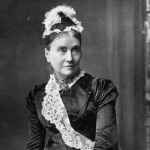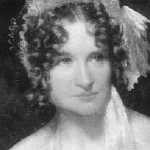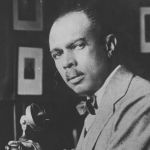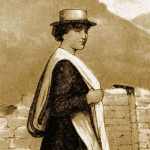Came the dread Archer up yonder lawn —
Night is the time for the old to die —
But woe for an arrow that smote the fawn,
When the hind that was sick unscathed went by.
Father lay moaning, Her fault was sore
(Night is the time when the old must die),
Yet, ah to bless her, my child, once more,
For heart is failing: the end is nigh.
(Night is the time for the old to die)
Woe for the wish if till morn ye bide —
Dark was the welkin and wild the sky.
Heavily plunged from the roof the snow —
(Night is the time when the old will die),
She answered, My mother, 'tis well, I go.
Sparkled the north star, the wrack flew high.
First at his head, and last at his feet
(Night is the time when the old should die),
Kneeling I watched till his soul did fleet,
None else that loved him, none else were nigh.
I wept in the night as the desolate weep
(Night is the time for the old to die),
Cometh my daughter? the drifts are deep,
Across the cold hollows how white they lie.
I sought her afar through the spectral trees
(Night is the time when the old must die),
The fells were all muffled, the floods did freeze,
By night I found her where pent waves steal
(Night is the time when the old should die),
But she lay stiff by the locked mill-wheel,
And the old stars lived in their homes on high.


















Comment form: